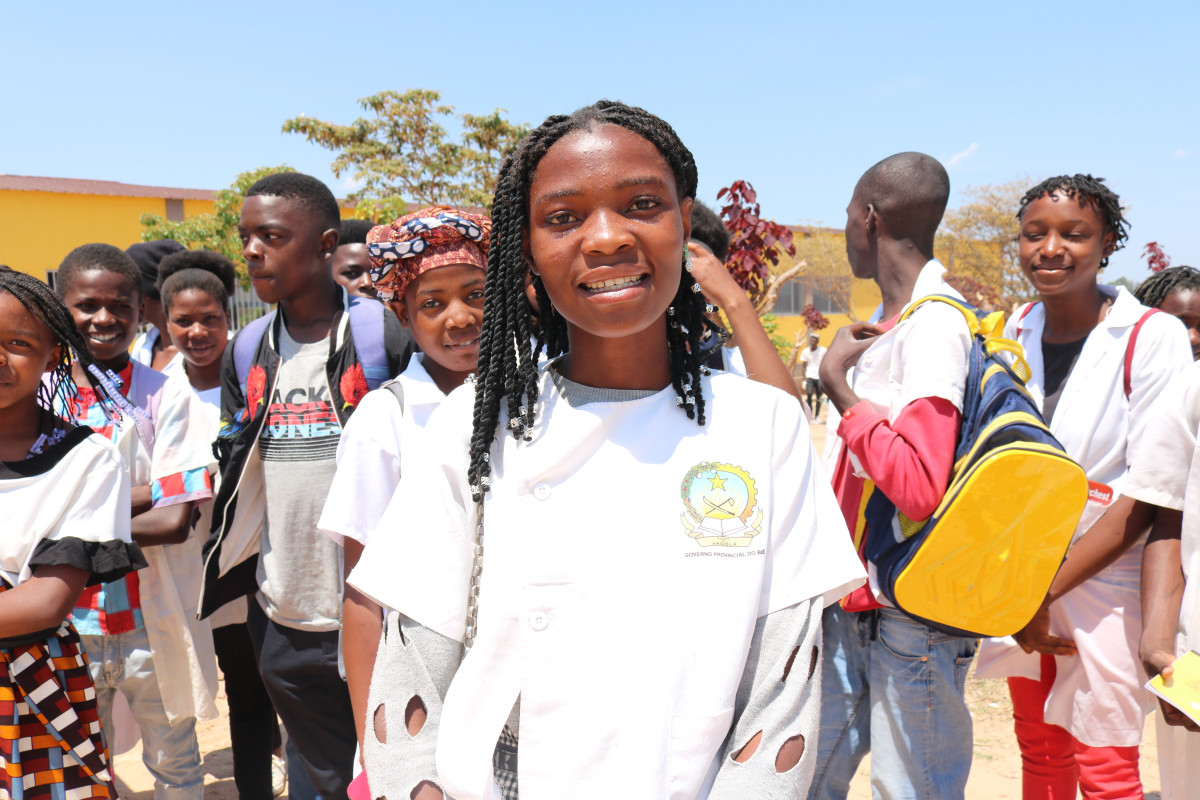Menstruation Should Not Be Taboo – Anywhere
Published: Nov 15, 2023 Reading time: 3 minutes Share: Share an articleImagine being unable to attend school because you are menstruating. Such is the reality of thousands of girls in Angola. Our colleague Ludovina Nunda and her team are fighting taboos and stereotypes to normalise perceptions of menstruation.

Menstruation is a natural and important process in women's lives, yet it remains taboo in many communities in Angola. Often, this stems from a lack of information. Therefore, we are undertaking to raise awareness in Bié Province. We are also helping the girls improve their conditions for managing menstrual hygiene inside and outside school and helping them feel safe.
In Bié Province, we responded to the main problems and challenges raised by a study we conducted on perceptions and barriers to menstrual hygiene management.
Our colleague, Ludovina Nunda, says the project identified several challenges related to menstrual hygiene management that directly affect girls, boys, and their communities. Among these challenges is the lack of appropriate information on menstruation. For Ludovina, this often leads to misconceptions and the perpetuation of harmful stereotypes, such as the idea that menstruation is somehow dirty or shameful.
We are working to break the taboo of periods in three schools; we hope to reach over 3,000 students.
Ending stigma and prejudice
Another challenge raised was the absence of girls from school during menstruation; those who did go to school often did not use the toilets because of the poor hygiene conditions. Recognising that the lack of access to information about menstruation harms everyone's health and well-being is essential.
The lack of information and the perpetuation of taboos around menstruation contribute to gender inequality. Ludovina recognises that addressing these issues is essential to achieving a more equal and inclusive future.
Inspiration for everyone
We work on the project with government institutions, women's groups, organisations specialising in menstrual health, parents and carers, churches, teachers and traditional midwives. It is understood that the involvement of all these parties is fundamental to challenging and deconstructing the myths and taboos surrounding menstruation.
Our activities include awareness-raising strategies through talks, debates, round tables and workshops inside and outside schools. We aim to create school clubs made up mainly of students who will actively raise awareness among their peers about the importance of menstrual health and other issues related to sexual and reproductive health.
Ludovina hopes that this project, "Menstrual Hygiene Without Taboos - My Health, My Life", funded by the Real Gift and Real Aid, will significantly reduce the taboos surrounding menstrual health. She hopes that—with time—menstruation will be a topic to be discussed naturally in families, schools, churches and other spaces. Ludovina wants to ensure that girls and women have sufficient information and access to materials to manage their menstruation with dignity. Finally, she hopes that menstruation will no longer prevent girls from attending school or participating fully in public life.
Ludovina considers the project inspiring for girls and women in Bié Province: "With the active involvement of various stakeholders and a commitment to challenging outdated ideas, we can create a future in which menstruation is viewed naturally, with dignity and respect. This project is an important step in the right direction."


